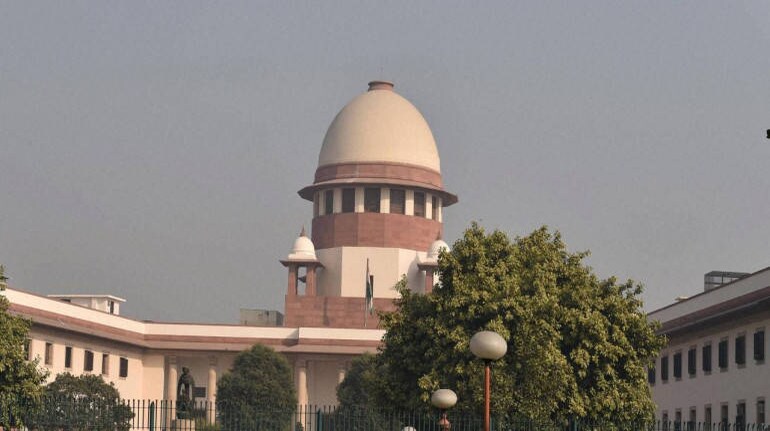



Abraham C Mathews
Given what was at stake, nobody but the die-hard optimists expected the five judges sitting over the Aadhaar petitions to hand over a clean victory to either side. And yet, the three judges who delivered the majority judgment came the closest one could have imagined to dividing bragging rights. One side got the victory; the other, the spoils.
To summarise, the three judges upheld the constitutional validity of the Aadhaar scheme as well as the Aadhaar Act, 2013, even as it put stringent restrictions on the services for which Aadhaar can be mandated, the types of information that can be collected; and most importantly, the period of time for which it can be stored, and the entities this information can be shared with. In a nutshell, this restores Aadhaar to what it was originally designed to be by the United Progressive Alliance (UPA) government.
This majority judgment was flanked by two minority judgments: one by Justice Ashok Bhushan, which upheld Aadhaar absolutely (I would call it a minority judgment, if not a dissent, in that it differs so much with the majority, in almost every respect except the outcome), and another by Justice DY Chandrachud who called Aadhaar a fraud on the Constitution, in his dissent.
In arriving at its conclusion, the majority seems to have insulated itself from the possible criticism of judicial-overreach as well as indifference; unlike, let’s say, either the NJAC judgment where a constitutional bench struck down the National Judicial Appointments Committee for selection of judges in toto, or the other, several instances where the court refused to interfere (for example, the Rajbala judgment – The court agreed the government could put restrictions on who could stand for panchayat elections – in that case, only those who had functioning toilets in their homes).
Aadhaar can now be mandated only by the State, and only for authentication of the identity of beneficiaries of State subsidies, closer to the social security number in the United States and the National Identification Number in the United Kingdom. In addition, by reiterating its approval of Section 139AA of the Income Tax Act, the judges also armed the government with its most potent weapon against tax fraud.
Since bank accounts are also required to be linked to be linked to PAN, PAN-Aadhaar-linkage is possibly the least-intrusive way to ensure that a person can stash money in multiple accounts to keep lawful taxes from the State (and that is the only interest that the government can have in regulating your money/property). Remember that a couple of years ago, the government mulled making all services (Railway journeys, PF withdrawals, and so on) accessible only with Aadhaar. That cannot happen, and neither will private companies be allowed to demand/store Aadhaar information.
Even so, there are critical concerns about the judgment that cannot and should not be brushed aside. First, the judgment proceeds on the assumption that the State will not act maliciously. In the footnote at the end of paragraph 153, the judgment takes on record “responsible statements of the learned attorney general and Mr Dwivedi who appeared for the UIDAI that no State would be interested in the mass surveillance of 1.2 billion people of the country, or even the overwhelming majority of officers and employees or professionals”. This will be scant comfort to the critics of the scheme, who opposed Aadhaar for precisely this reason, as authoritarian governments have typically been fans of surveillance in some form or the other. The judgment, however, dismisses this as foofaraw (yes, that's the word they used!).
The apex court also relies on the government’s word that the Aadhaar Act contains inherent protections, with criminal consequences for breach, against misuse of Aadhaar data by the State or its functionaries. However, much of the abuse that was likely to happen would have been extra-legally. The government told the court that this is conjectural and speculative, as well as based on imaginary possibilities, but one finds it difficult to believe that such abuse does not routinely already happen (such as unauthorised cell-phone tapping) by officials, not necessarily acting on behest of the government.
One can sense the court’s reservations when it accepts that the government collects and stores very limited data, but all the same severely restricts the period for which such data can be stored to six months — perhaps the most important protection. The concern was that with each authentication, a permanent record was being created (perhaps with two data points — the Aadhaar card holder, and the authentication machine, which would show the service being availed) and stored in government servers, which could then be used to profile citizens — an electronic leash, as counsel for one of the petitioners put it. This would be severely minimised if data cannot be held beyond six months.
Further, the court makes it clear that services that have become akin to fundamental rights, such as education and food, cannot be denied for want of Aadhaar. It again relies on the government’s word that alternate authentication mechanisms are available, but we have already seen how many have been deprived even with such protections. As of now, a service such as rail-travel, inevitably subsidised by the government, cannot mandate Aadhaar, because it is not a targeted subsidy. But one expects there will necessarily be another round of litigation to define these boundaries more precisely.
(Abraham C Mathews is an advocate in the Supreme Court. Views expressed are personal)
Discover the latest Business News, Sensex, and Nifty updates. Obtain Personal Finance insights, tax queries, and expert opinions on Moneycontrol or download the Moneycontrol App to stay updated!
Find the best of Al News in one place, specially curated for you every weekend.
Stay on top of the latest tech trends and biggest startup news.